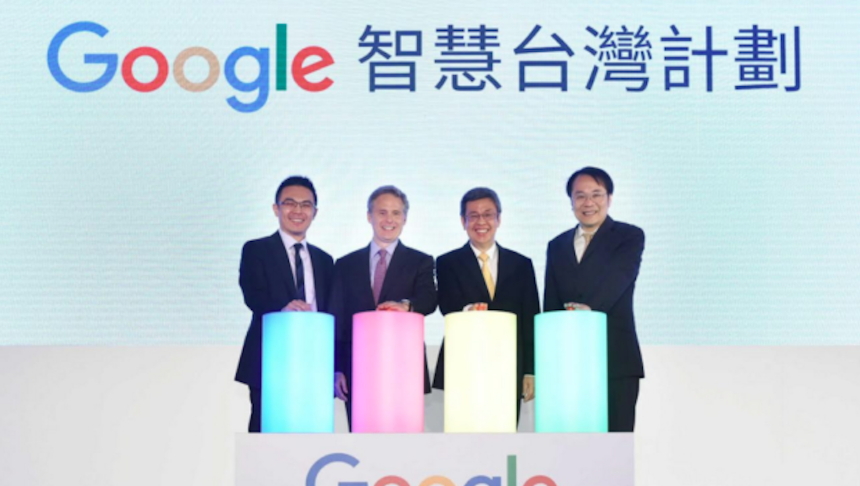Google Lays Plans to Develop AI Talent in Taiwan in 2018

Google said this month it would start a series of projects to kick off its largest ever recruitment drive in Taiwan, part of a broader push to expand R&D in one of the world’s chief high-tech centers.
Google has already made more than 100 jobs available, including positions in the research and development of artificial intelligence (AI) and expects to employ a total of more than 300 Taiwanese professionals this year.
The Silicon Valley software giant’s March 21 announcement also calls for training talent this year, building on what it sees as Taiwan’s strength today – integrated circuit design and manufacturing.
It plans to work toward that goal with Taiwan government departments, universities and the business sector. It will train over 5,000 artificial intelligence (AI) talents and 50,000 digital marketing personnel over the coming year.
The company has also finished the third phase of an expansion of its Google Taiwan Data Center in Changbin Industrial Park in central Taiwan. It will roll out the fourth phase over the rest of 2018.
According to a report from consultancy Copenhagen Economics, in the seven years since Google first invested in the Google Taiwan Data Center until now, its operations have spurred investments in servers, network solutions, renewable energy and other related industries. Those investments have contributed about NT17.6 billion (US$604 million) to the Taiwan economy.
“Despite Taiwan’s size, the possibilities here are endless… and the investment Google is making in Taiwan’s intelligent hardware isn’t restricted to smartphones alone,” said Chien Li-feng, Google Taiwan’s general manager at the launch.
In January Google paid HTC to bring on 2,000 of the Taiwanese tech hardware firm’s employees and help develop Pixel smartphones.
Following Google’s work in Taiwan to develop Android devices from Taiwan and Chromebook PCs, the company will expand its collaboration with its Taiwanese equipment contactors to develop vehicles, wearable devices, television sets and home appliances, Chien added.
Boom in artificial intelligence
Taiwan is becoming Google’s strategic base for AI hardware development.
The 300 people being recruited for jobs in areas such as artificial intelligence will help Google Home, an interactive speaker, its Cloud services and consumer hardware.
If Google wants to expand long term in Taiwan, the location needs not only a large scale of hardware, but also a foundation in software plus talents with core competence in artificial intelligence. That backdrop explains Google’s push for AI-related training courses in Taiwan.
The training would support Google to expand fundamental AI knowhow, leading to higher adoption rates of its customizable machine learning service, the open-source dataflow programming library TensorFlow and other Google cloud-based tools.
Training would help Taiwan’s universities and AI hardware manufacturers nurture AI talent on a larger scale, as well.
Google will hold an “AI Innovation Research Camp” with academics at National Taiwan University, Ching Hua University, Chiao Tung University and Cheng-kung University. The camp would give academics more opportunities to deepen exchange with Google’s own AI experts and become better connected with the industry on an international level.
Another training session, Google’s “Machine Learning Crash Course” will be free for university professors, high school teachers and company training managers. The idea is to spread AI education.
“This learning material is not only made up of online courses, but also includes practical offline events,” Chien said.
〔Original :Meet Startup @ TW〕https://meet.bnext.com.tw/intl/articles/view/42654